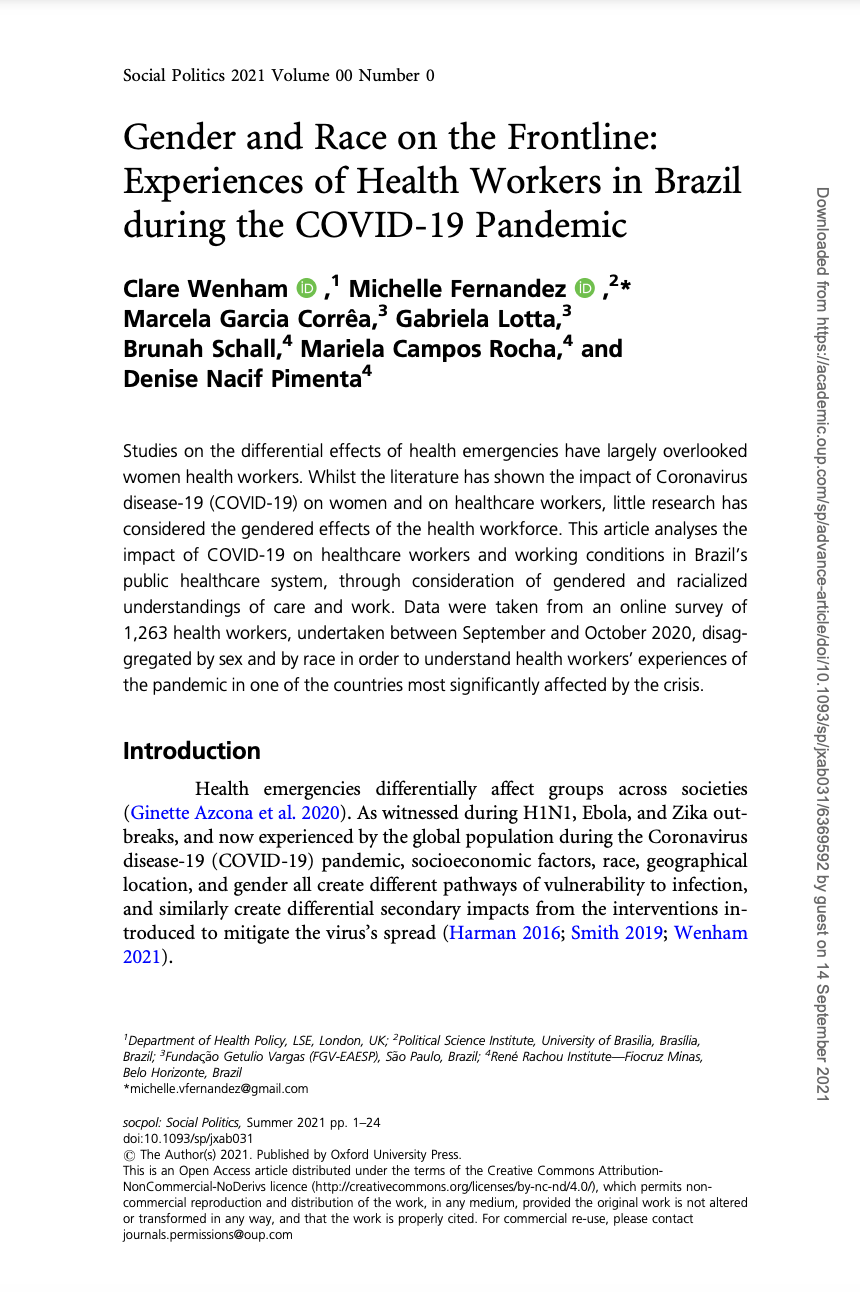In this article, we seek to contribute to this literature to demonstrate the gendered and racial effects of COVID-19 within the role of women as healthcare workers.
Health emergencies differentially affect groups across societies. As witnessed during H1N1, Ebola, and Zika outbreaks, and now experienced by the global population during the Coronavirus disease-19 (COVID-19) pandemic, socioeconomic factors, race, geographical location, and gender all create different pathways of vulnerability to infection, and similarly create differential secondary impacts from the interventions introduced to mitigate the virus’s spread.
Studies on the differential effects of health emergencies have largely overlooked women health workers. Whilst the literature has shown the impact of Coronavirus disease-19 (COVID-19) on women and on healthcare workers, little research has considered the gendered effects of the health workforce. This article analyses the impact of COVID-19 on healthcare workers and working conditions in Brazil’s public healthcare system, through consideration of gendered and racialized. understandings of care and work. Data were taken from an online survey, undertaken between September and October 2020, disaggregated by sex and by race in order to understand health workers’ experiences of the pandemic in one of the countries most significantly affected by the crisis.
Clare Wenham, Michelle Fernandez, Marcela Garcia Corrêa, Gabriela Lotta, Brunah Schall, Mariela Campos Rocha, Denise Nacif Pimenta, Gender and Race on the Frontline: Experiences of Health Workers in Brazil during the COVID-19 Pandemic, Social Politics: International Studies in Gender, State & Society, 2021






